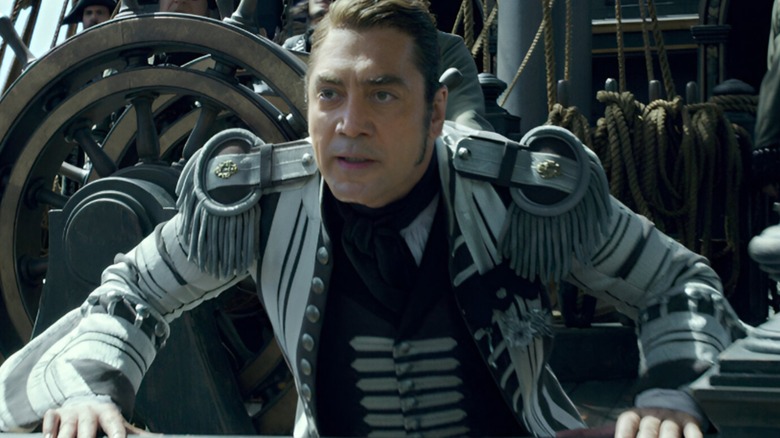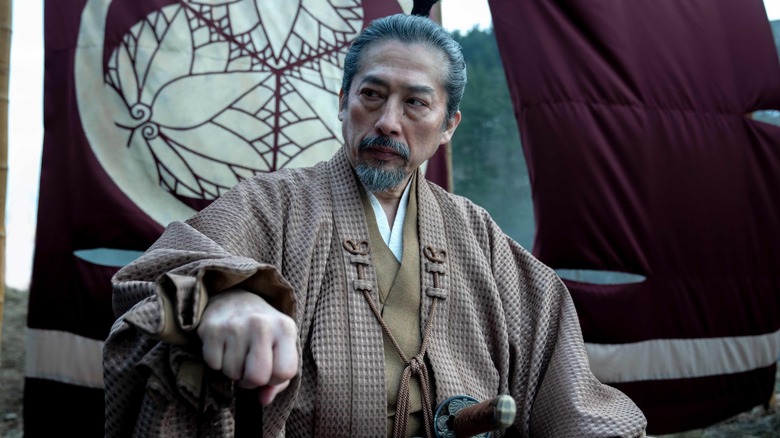The Canceled Steven Spielberg Miniseries That Could Have Become A Classic
Folks, it's time for a quick history lesson. If you've never heard of Hernán Cortés, he was a Spanish conquistador who led an expedition that directly resulted in the fall of King Montezuma II's Aztec empire. Spearheading the Spanish colonization of the Americas in the 16th century, Cortés took advantage of existing political crises to rally allies in his favor and establish his own stronghold. The rest is a tragic, predictable tale marked with endless strife, counterattacks, and colonial cruelty inflicted on the indigenous populace, with Cortés emerging as an important yet controversial historical figure.
In 2018, someone at Amazon Studios had the bright idea to greenlight a miniseries revolving around Cortés, with Steven Spielberg attached as executive producer. Spielberg's involvement with the project can be traced back to 2014, as the initial plan was for him to direct a film based on the complicated relationship between Cortés and Montezuma II. You see, screenwriter Dalton Trumbo (best known for his contributions to "Roman Holiday" and "Spartacus") had written a 205-page screenplay (!!!) titled "Montezuma" back in 1965, but this project never took flight due to various reasons.
Fast-forward to 2014, and Steven Zaillian (who penned the screenplay for "Schindler's List") wrote a second script (now retitled "Cortés") based on Trumbo's draft, leading Spielberg to consider getting involved as director, with Javier Bardem in talks to star as the infamous conquistador. This, obviously, didn't come to pass, but Zaillian ended up tweaking his screenplay into a four-hour miniseries in 2018, Bardem officially signed on to star, and Spielberg was involved as an executive producer. However, the COVID-19 pandemic destabilized the industry in 2020, leading production for the "Cortés" miniseries to be paused. It never resumed.
Historical epics featuring complicated figures tend to perform well when handled with nuance (the brilliance of FX's "Shogun" comes to mind), which might've also been the case with "Cortés." Let's take a closer look at what could've been.
Like Shōgun, Cortés could've been a grounded historical epic with multifaceted characters
Some historical retellings run the risk of glossing over personal shortcomings (which, in some cases, are unforgivable cruelties) in an attempt to make their central characters likable. Take the various adaptations of "The Bounty" as an example, where the same story about the historical mutiny on the HMS Bounty is frequently told through drastically different lenses. In every version, Lieutenant William Bligh emerges as a somewhat unsavory figure, but Roger Donaldson's "The Bounty" invests Bligh with startling complexity without diminishing the problematic overtones of his actions.
Although Amazon's "Cortés" was always supposed to be an epic steeped in spectacle, it could have centered the titular conquistador while highlighting the atrocities that are part and parcel of any colonial expedition, along with the disastrous fallout triggered by such an act. Bardem's statement about the project (as a part of its press release at the time) reflects this potential complexity, as the actor acknowledged that the "best and worst of human nature" should be highlighted in a tale with immense dramatic potential:
"It is a privilege to tell this epic story -– one that is full of drama and conflict within this huge, historical spectacle where two distant civilizations clash at the height of their reign. The best and worst of human nature came to life in all its light and darkness. As an actor, there is no better challenge than to serve such a unique project that I have been passionate about for years, and I am thrilled to be working with this dream team of Steven Spielberg, Steven Zaillian and Amazon."
Ciro Guerra and Cristina Gallegos (best known for their epic crime film "Birds of Passage") were set to direct this miniseries — a solid choice considering their bold visual style and ability to convey visceral tension on the screen. The scope of the project was also impressive, as it was being filmed in Spanish, Nahuatl, and Chontal Mayan at the same time. Regrettably, Amazon scrapped all plans of resuming production due to the pandemic, leaving us to ponder whether we could've had a historical saga that reveled in its massive scope without sidelining the uncomfortable truths of history.

